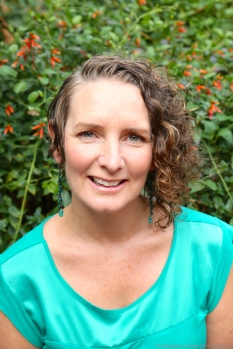I don’t watch TV a lot, but I often see snippets of shows when I’m at the gym, where they have 7 different TVs playing what they have determined to be “popular” shows. There is a show that I see often, highlighting the increased impact of heroin in suburban, middle-class communities. This issue has also been in the news lately and the language surrounding the “problem” talks about it as a health concern, an issue that requires our compassion and our empathy. The people who are struggling with addiction are being humanized and non-criminalized interventions are urged. All of this is ultimately what I believe should happen. I believe drug addiction is a heath concern and should be looked at as such. Unfortunately on the back side of this narrative is the history of the crack cocaine epidemic in the 80’s and before that the heroin epidemic of the 60’s and the heavy impact the African American community in this country, in particular, has endured from both of these “epidemics.” In the past, there wasn’t any popular language urging us to think about drug users as deserving of help, or being humanized and offered treatment. On the contrary, they were dehumanized, popularly looked upon as criminals, problematic, super predators and needing harsh prison sentences to learn from their mistakes.
Many scholars, including the profound work of Michelle Alexander’s, The New Jim Crow: Mass Incarceration in the Age of Colorblindness as well as the the groundbreaking film, 13th, by Ava DuVernay, have looked at the ways in which these drug epidemics deeply impacted the Black community. They break down the narrative of criminalization, the media portrayal of drug users as violent, as “super-predators”, as unable to take care of their children. Entire families, entire communities were ripped apart by the these narratives because they were intricately tied to laws; 3 strikes you’re out laws, mandatory minimum laws that gave harsher sentences to crack cocaine users than powder cocaine users, with the major difference being that crack cocaine was being used by Black people and powder cocaine was being used by white people. In both of these bodies of work, they detail the harms to Black communities that have been endured because when people of color use drugs, they are criminalized and incarcerated, their children being taken away from them and put into the foster care system. As detailed in the article, “How White Users Made Heroin a Public-Health Problem,” by Andrew Cohen in the Atlantic, the tides are turned when it’s white and affluent communities using drugs and the narrative changes to a health concern and worthy of our empathy. I don’t disagree that the people in suburban, affluent neighborhoods who are being heavily impacted by the effects of drug use and drug addiction, are worthy of our empathy. I strongly believe they are. I also believe that the people and families from less affluent neighborhoods, predominately people of color, who were caught in a whirlwind of drug use and abuse are just as worthy of our empathy and should be just as likely to receive health informed interventions instead of criminalization and incarceration.
Even now, with California’s law making marijuana legal for recreational use, it is difficult to ignore the amount of people, specifically people of color, who have been locked up or were locked up for years because of marijuana use or sale. Children didn’t see their parents or their uncles or aunts or brothers or sisters for 3-7 (or more) years sometimes for doing what is now being done legally in dispensaries all over California. Again, I’m not here to say I disagree with the de-criminalization of marijuana. I believe it’s necessary for us to critically think about the impact of unjust laws and question who is being impacted by them. As history has continued to show us, we will continue to be faced with unjust laws and will be faced with choice on how to engage with them.
There are so many opportunities for each of us to critically ask what rules and laws are we agreeing to or abiding by in order to “keep the peace” or because we would rather follow the rules than question the underlying purpose of the law or rule. Within each of us, there is an internal moral code. An internal guide that knows a deeper understanding of humanity than the socially constructed ideas of “right and wrong” that we’re fed by the media and other institutions. There is no time like the present to ask ourselves, is this right? What is the underlying purpose of this law or rule? Who benefits from it, and who is negatively impacted by it? How have negative stereotypes or assumptions fueled the implementation of this law or rule?
When we stand in our truth with conviction and courage, we make a ripple, causing that ripple to transform into a wave, supporting that wave to become a current. A current so strong it pulls the most unsuspecting people into the movement towards truth and reconciliation. Our power grows when we stay grounded in the deep universal truths of love, which is empty without justice, and justice, which is weak without love. Recently, I was at an even called “Decolonizing the Psyche,” and the facilitator/ speaker, Amber McZeal said, “Love is not the absence of conflict. Love is the presence of conflict with the courage, character and commitment to find your way through it.”
There is no time like the present to be courageous and speak the truth.

